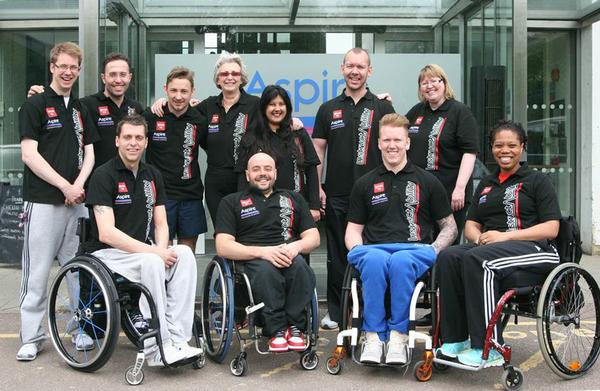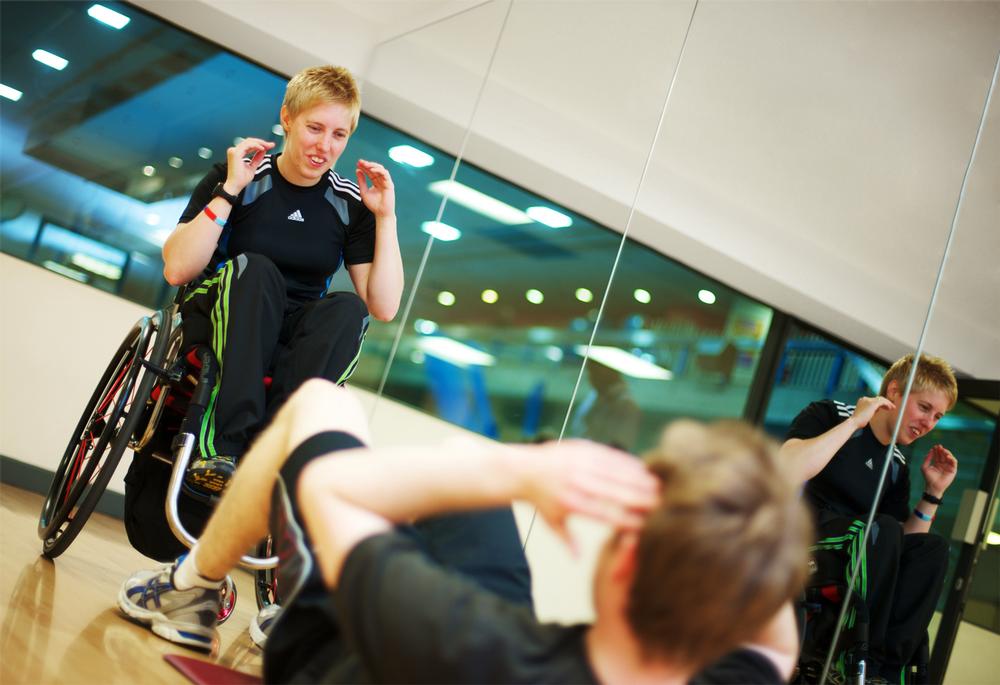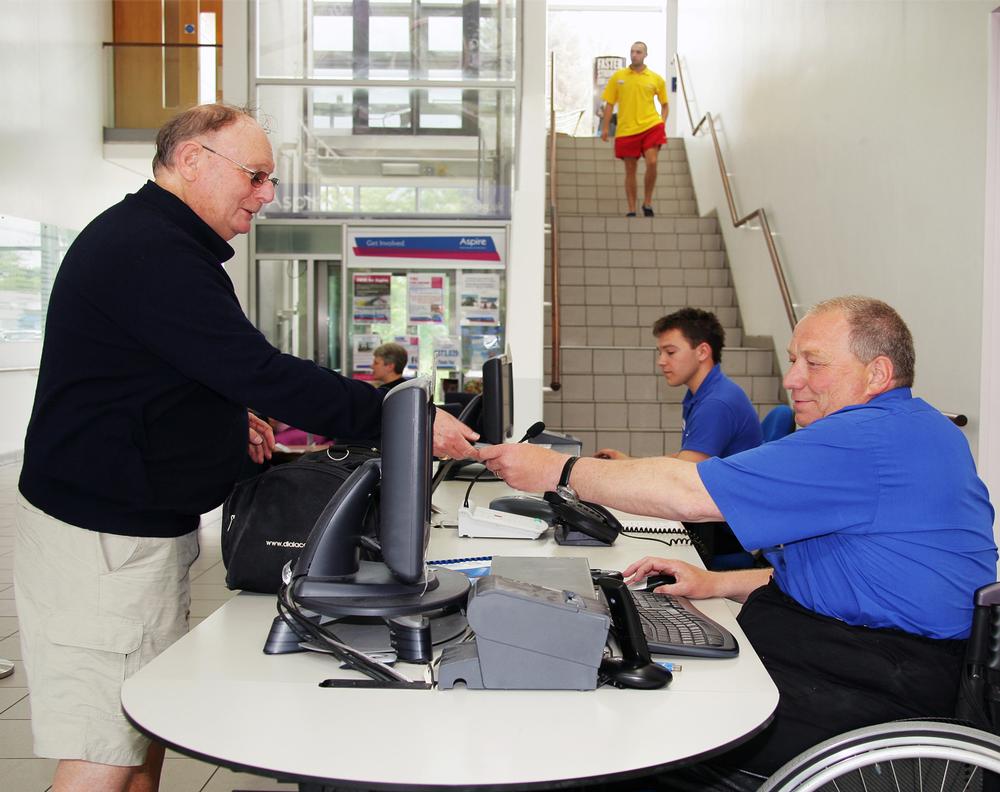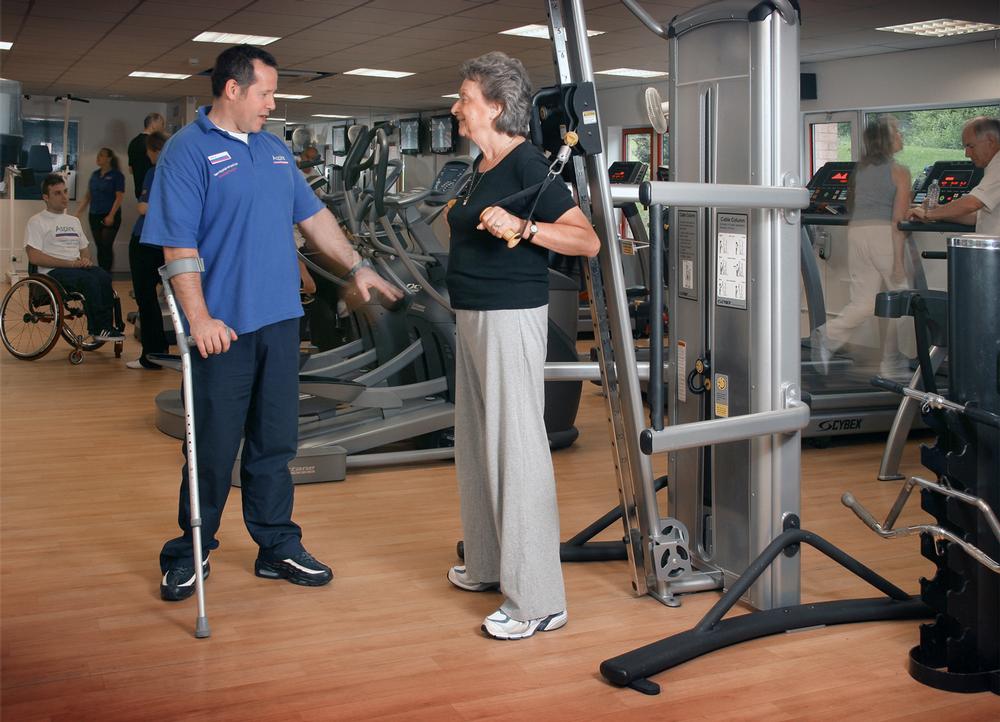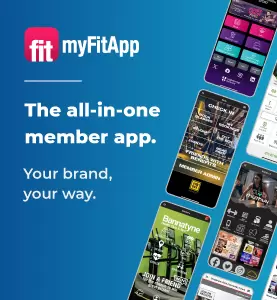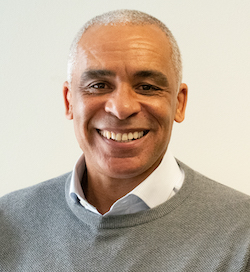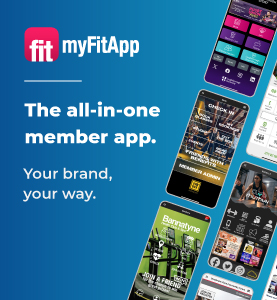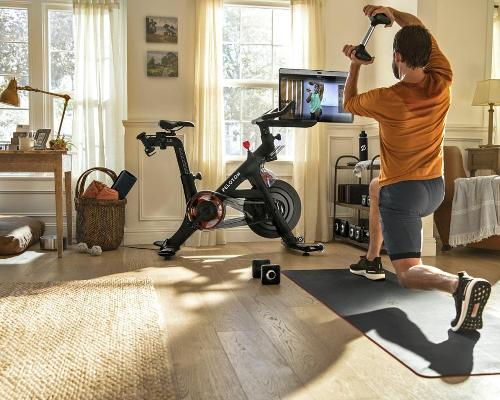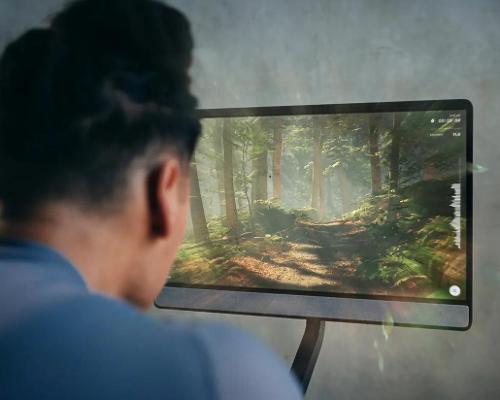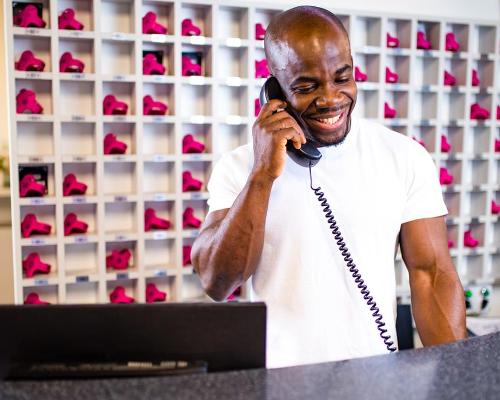Given its location in the grounds of the Royal National Orthopaedic Hospital in Stanmore, north-west London, it may at first seem unsurprising that the Aspire National Training Centre (ANTC) caters so well for the needs of disabled people.
Founded in 1982, it was originally conceived as a rehab centre for patients at the hospital’s world-class spinal unit, but quickly evolved into something much more groundbreaking: a fully accessible leisure centre to meet the needs not only of those with spinal injuries, but people of all backgrounds and levels of ability.
More than three decades later, both the centre and the charity, Aspire, which was set up to run it remain committed to this inclusive ideal: 30 per cent of ANTC’s 3,000-strong membership is disabled (compared to a national average of 2–3 per cent) while the remaining 70 per cent is not. A further 2,000 registered users visit the centre on an ad hoc basis.
According to centre manager Hannah Bladon, ANTC’s success in attracting disabled customers can be attributed to a number of factors: its impressive array of accessible facilities and classes (see below); its partnership with the London Spinal Cord Injury Centre, whose patients use the facility for rehab and also receive in-patient memberships for the duration of their stay; and a proactive outreach programme, including exercise referrals.
Leading by example
A large part of the centre’s appeal to disabled customers – and crucial in retaining them – is its employment policy. At present, just over 20 per cent of ANTC’s entire workforce and around 60 per cent of its 20-strong fitness team (including full-time employees, cover staff and volunteers) has a disability.
What’s more, says Bladon, those figures are achieved without positive discrimination: “We don’t actively recruit for disabled staff, but because of who we are and what we do, we probably get more applications from disabled people. They know the facility is accessible, they’ll be welcome and have as good a chance of getting the job as anyone else.”
To accommodate disabled employees, the staff room is fully accessible and some do work shorter days – but mostly, few allowances need to be made. On the flip side, there are enormous benefits to employing disabled fitness instructors, not least in reassuring disabled customers that their needs will be understood and catered for.
Disabled fitness instructors also give a more human face to the gym environment, making it less intimidating not only for disabled users but also for older and deconditioned populations (more than half of ANTC’s registered users are aged over 50). “Our disabled instructors have life experience. They can turn people around,” says Bladon. “They can say, ‘I’ve been through this and look where I am now. You don’t think you can do it, but you can’.”
Industry education
But if ANTC is at the forefront of the drive to make fitness and fitness careers more accessible to disabled people, it’s clear the rest of the industry is still lagging behind.
For starters, the percentage of disabled members in fitness facilities remains disproportionately low (17 per cent of the general population has a disability). Further to this, Aspire has identified active discrimination against disabled people seeking work in the fitness industry. According to research published by the charity in 2011, a wheelchair user is twice as likely to receive an outright rejection when applying for a job in the fitness profession, all other factors being equal. Meanwhile, a non-wheelchair user is nearly four times as likely to be invited for an interview.
One way that Aspire is working to redress this imbalance is through its involvement with Quest, Sport England’s national quality scheme for sport and leisure. ANTC has been Quest-accredited since 2012 (it currently has an ‘excellent’ rating) and, through regular involvement with the scheme’s annual conference and other events, the charity is able to raise awareness among fellow operators and provide a benchmark against which they can measure their own efforts to cater for disabled users. “Quest enables us to share the inclusive nature of our facility with other general managers and to broaden their horizons as to how they can further promote activity to disabled people,” explains Bladon.
But most crucial of all to Aspire’s drive to educate the wider industry is its Sport England-funded InstructAbility scheme. Set up and managed by Aspire in partnership with training provider YMCAfit, the initiative offers free training to unemployed disabled people with a view to helping them gain qualifications, experience and eventually employment as fitness instructors.
Created in 2010 but just now gathering momentum, the programme includes an 18-day training course for up to 12 students, delivered over seven weeks and leading to a CYQ Level 2 Certificate in Gym Instructing as well as a CYQ Level 3 disability and exercise qualification. This is followed by a 12-week work placement within a leisure centre or private health club.
While YMCAfit delivers the fitness training in Inclusive Fitness Initiative (IFI)-accredited venues, Aspire provides each student with a mentor to support them through the process; delivers community outreach training aimed at providing students with the knowledge, skills and resources to engage disabled people in the local community; and works with other industry operators to set up and facilitate work placements.
Made possible by an £850,000 grant from Sport England’s Places People Play initiative, the first InstructAbility courses were held in London but have since been offered across southern, eastern and central England, with plans to roll out the scheme in northern regions next year. To date, 90 people have qualified as fitness instructors through the scheme, with impairments ranging from spinal cord injury, spina bifida and cerebral palsy to visual impairment, missing limbs and loss of function caused by stroke, brain injury and neuro-muscular disease.
According to Hilary Farmiloe, national project manager for InstructAbility, the scheme was set up to tackle the under-representation of disabled people in the fitness industry, both as employees and users. “InstructAbility is not just a project, it’s a movement, and I believe the army of disabled people we’re equipping to work in the fitness industry will provide a legacy of lasting change.
“Our long-term aim is to influence fitness training providers and leisure operators to the extent that an intervention like InstructAbility will no longer be required.
“When disabled people have more role models within the industry and no longer face physical and attitudinal barriers to accessing training and employment, we will have succeeded.”
The key to success, adds Farmiloe, is buy-in from the industry, and feedback from operators with whom the scheme has partnerships – including GLL, Fusion, Everyone Active, DC Leisure and Fitness First – has invariably been extremely positive. “We regularly hear how an InstructAbility student has raised awareness of disability among other staff and, in some cases, helped the centre make small adjustments to improve their accessibility,” she says. “Managers have also reported an impact on retention of current customers, as well as an increase in the number of disabled people using the facility.”
Quest for excellence
Recently, InstructAbility received a boost from the Quest quality scheme for leisure centre operators, which has announced the addition of a compulsory Community Outcomes module to its assessment process, starting this summer. “If a centre can show it’s supporting disabled people, encouraging them to participate in sport and fitness, this will certainly help them do well in our new module,” says Caroline Constantine, Quest operations director.
“One of module’s key aims is to make sure that Quest-accredited operators are reaching out to people from all backgrounds and levels of ability, including those who might traditionally have felt they didn’t belong in this kind of environment. Taking part in an inclusive scheme such as InstructAbility and/or employing disabled staff is a great way for operators to demonstrate their commitment to this goal.”
Farmiloe agrees: “I’m delighted that Quest is supporting InstructAbility and recognises how the programme can support centres in their drive to do well in the Community Outcomes Module, while also encouraging greater diversity in their workforce and customer base.”
However, there’s still education to be done to get more operators on board, particularly in the private sector.
Central to the InstructAbility concept is the role of the disabled fitness instructor as an ambassador for inclusivity – with their unique ability to relate to disabled users as well as other hard-to-reach groups in the community – and it’s this message that Farmiloe is keen to push.
“Operators often respond by saying they don’t do work placements or accept volunteers,” she says. “But we want them to realise there’s a business case to answer, because if they want to remain competitive, they can’t keep focusing only on the clients they have.
“It’s about making the industry understand that an instructor who has an impairment can be a real asset – not despite, but because of, their experience of disability and their ability to reach out to others.”








